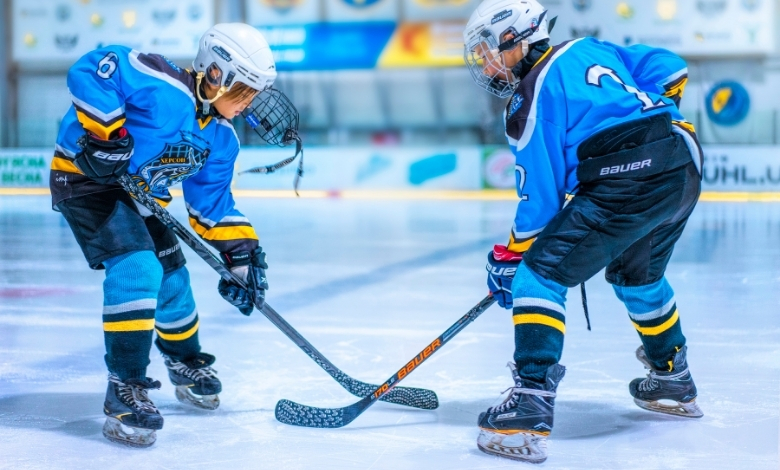Do you need a USA Hockey number for HNA? Find out the definitive answer and learn everything about HNA’s registration process here.
A few years ago, when I was thinking about joining Hockey North America (HNA), I had one really annoying question: Do I need a USA Hockey number to play? I searched online, asked around, and even reached out to the league, but the answers were all over the place. Some people said you absolutely needed it, while others said it didn’t matter. Honestly, it was super frustrating trying to figure it out.
After going through the process myself, I can finally clear things up: No, you don’t need a USA Hockey number to play in HNA. But there’s a bit more to it, and knowing the details can save you some time, money, and stress. Understanding how HNA operates compared to USA Hockey is almost like breaking down the elements of a firm’s business model, it helps to know what’s required, what’s optional, and how the process works.
So, if you’re thinking about joining HNA or just want to understand how it works, keep reading. I’ll explain how the registration process works, how it’s different from USA Hockey, and exactly what you’ll need to hit the ice.
Article Breakdown
1. USA Hockey vs. HNA – What’s the Difference?
Let’s break down why Hockey North America (HNA) doesn’t require a USA Hockey number.
USA Hockey is the main organization for ice hockey in the U.S. If you played youth hockey, high school, or competitive amateur leagues, you probably needed a USA Hockey number. Signing up comes with benefits like insurance and coaching resources, but it also means following their rules and paying membership fees.
HNA is different. It’s an independent adult rec league, so you don’t need USA Hockey registration to play. They’ve created their own system for registration, insurance, and organizing the league.
Here’s a simple comparison:
| Feature | USA Hockey | Hockey North America (HNA) |
| Affiliation | National governing body | Independent adult league |
| Membership Required? | Yes, for USA Hockey leagues | No, HNA has its own system |
| Insurance | Coverage for sanctioned events | HNA provides its own coverage |
| Equipment Rules | HECC-certified helmet | Helmet + face shield required |
| Jersey Number System | No specific requirement | Unique numbers per team |
The key takeaway? HNA does things its own way. But don’t assume it’s a free-for-all, you still have to meet their requirements. Let’s dive into what those are.
2. What Do You Need to Play in HNA?
When I first signed up for HNA, I assumed I could just show up, lace up, and hit the ice. Rookie mistake. Unlike some beer leagues where you can throw on any jersey and call it a day, HNA has a structured system that keeps things organized and professional.
Here’s what you actually need:
1. HNA Registration
Before anything else, you’ll need to register through the HNA website. The process involves:
- Creating an account
- Selecting a team or free agent status
- Paying the league fee (varies by location)
Unlike USA Hockey, which uses a national registration system, HNA’s process is league-specific. Each region has its own sign-up requirements, so double-check with your local HNA branch.
2. Equipment Requirements
HNA is strict about player safety. I learned this the hard way when a teammate was nearly benched for showing up without the proper gear. Here’s what’s mandatory:
- HECC-approved helmet (must have at least a half shield or visor)
- Full hockey gear (gloves, shin guards, elbow pads, etc.)
Unlike some adult leagues where enforcement is lax, HNA refs will check your gear. Don’t get caught unprepared.
3. Unique Jersey Number Rule
This one surprised me at first. In HNA, every player must have a unique jersey number. No blank jerseys, no duplicates on the same team. This rule keeps games running smoothly and prevents confusion for refs and scorekeepers.
If you’re new to the league, check with your team captain to make sure your number isn’t already taken.
3. What About Insurance?
One reason many leagues require USA Hockey registration is for insurance coverage. But since HNA doesn’t fall under USA Hockey, it has its own system.
USA Hockey Membership Insurance
USA Hockey registration provides:
- Supplemental medical insurance
- Liability coverage for sanctioned events
HNA’s Insurance Policy
- HNA provides its own insurance for players
- Coverage applies only during HNA-sanctioned games
So, should you still get a USA Hockey number for the insurance benefits? It depends. If you only play in HNA, you don’t need it. But if you bounce between leagues, it might be worth having both.
When I first joined, I kept my USA Hockey membership just in case. Over time, I realized I never needed it for HNA, so I stopped renewing it. Assess your own risk tolerance and go from there.
4. Should You Get a USA Hockey Number Anyway?
While HNA doesn’t require it, there are situations where having a USA Hockey number can be useful:
- If you plan to play in both HNA and USA Hockey leagues
- If you want access to USA Hockey’s coaching, training programs, or camps
If you’re a casual player who only skates in HNA, skip the USA Hockey registration. But if you move between leagues, keeping your membership might be a smart move.
Key Takings
If you’re ready to play in HNA, follow these steps:
- Visit HNA’s website and complete your registration
- Get the right gear (especially a HECC-certified helmet with a shield)
- Make sure your jersey number is unique for your team
- Decide if extra insurance is necessary based on your situation
Useful Resources:
- USA Hockey Member Registration: Official USA Hockey page with step-by-step registration details for the 2024-25 season.
- Hockey North America Registration: Official HNA page with registration details, pricing, and contact information.
- NHL Learn to Play Equipment Guide: Comprehensive guide for youth hockey equipment, including fitting tips and recommendations.
- Beginner’s Hockey Equipment Buying Guide: Detailed breakdown of essential gear for beginners, focusing on safety and performance.
- Hockey Equipment Guide for New Adult Players: Tailored guide for adults starting hockey, with practical tips and equipment recommendations. Let me know if you’d like any adjustments.



